The Proverbs of Hell 31/39: Contorno
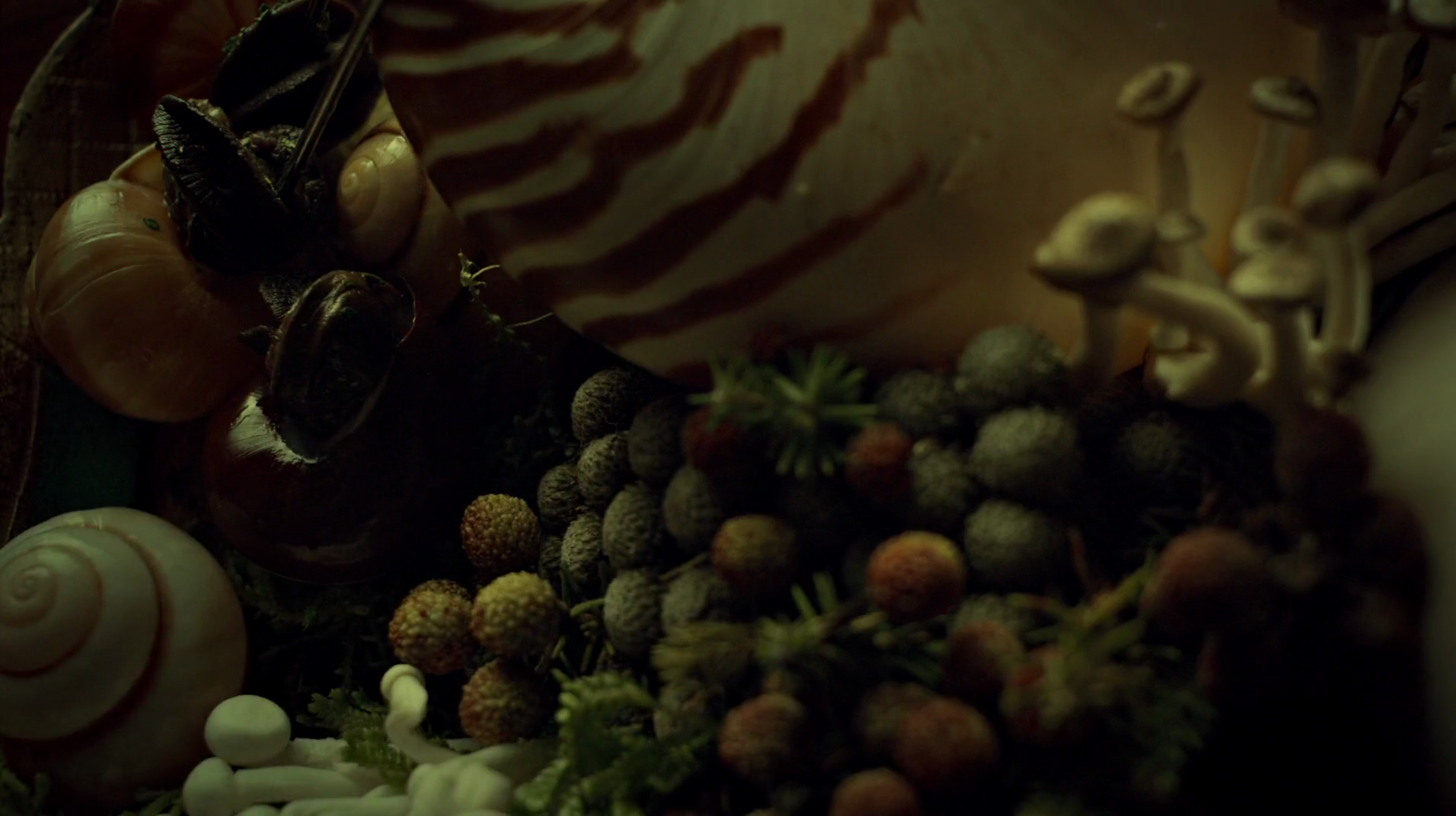 CONTORNO: A side dish, typically served with the secondo. This episode is a last chance to do small stuff before the major fireworks of the first arc of the season go off, but more to the point, as we will see, is in a meaningful sense focused on a side character.
CONTORNO: A side dish, typically served with the secondo. This episode is a last chance to do small stuff before the major fireworks of the first arc of the season go off, but more to the point, as we will see, is in a meaningful sense focused on a side character.
CHIYOH: On still evenings, when the air was damp after a rain, we played a game. Hannibal would burn all kinds of barks and incense for me to identify by scent alone. He was charming the way a cub is charming, a small cub that grows up to be like one of the big cats.
WILL GRAHAM: One you can’t play with later.
The game is more or less a direct quote from Hannibal Rising, and the nominal origin of Hannibal’s supernatural sense of smell. Although it is notable that the game is played with burnt objects, so that what is identified is not the smell of the thing, but the smell of its destruction. In her analogy for his charm, meanwhile, we have something that’s almost diametrically opposite from Will’s “pathetic wretch that failed to die” assessment, suggesting an early and seemingly innate grandeur to Hannibal. It is difficult, as we get into the depths of the show’s third season, to argue that Chiyoh does not have the right of it.
WILL GRAHAM: He comes in the guise of a mentor, but it’s distress that excites him.
This does not in fact describe Hannibal’s initial approach to Will, in which he was largely the manufacturer of the distress. Indeed, Will appears to have Hannibal wrong here. Hannibal certainly does do this on occasion, most obviously with Abigail, but Will is wrong to treat Hannibal’s tendency towards mentorship as insincere. As Chiyoh’s incense story shows, he really does enjoy the role of teacher, which is unsurprising given that the role leads directly towards something that clearly excites Hannibal more than distress: transformation.
CHIYOH: How do you know Hannibal’s in Florence?
WILL GRAHAM: Botticelli.
It’s interesting that Will’s answer is not, in fact, the double murder at the university, that being the thing that Bedelia assumed would bring attention to Hannibal. (Indeed, so far as I can tell nobody ever really makes anything of Anthony Dimmond’s murder at all – later in this episode, in fact, Pazzi calls Sogliato the second person to disappear.)
BEDELIA DU MAURIER: Almost anything can be trained to resist its instinct. A shepherd dog does not savage the sheep.
HANNIBAL: But it wants to.
I am not an expert on dog psychology, and far too lazy to commit to depth in researching this, but this certainly seems as though Hannibal is projecting, if only because of the research suggesting that dogs’ default behavior is in fact that of a profoundly lazy scavenger. (That and the people I’ve talked to who have pet collies that have never seen sheep, and who instead attempt to herd their families into a single room.) Nevertheless, this is a fantastic exchange, mostly because the discussion of animal psychology paints a vivid image for the real subject, human psychology, and the suggestion that human law and civilization is a thin veneer constantly threatened by an underlying savagery.…

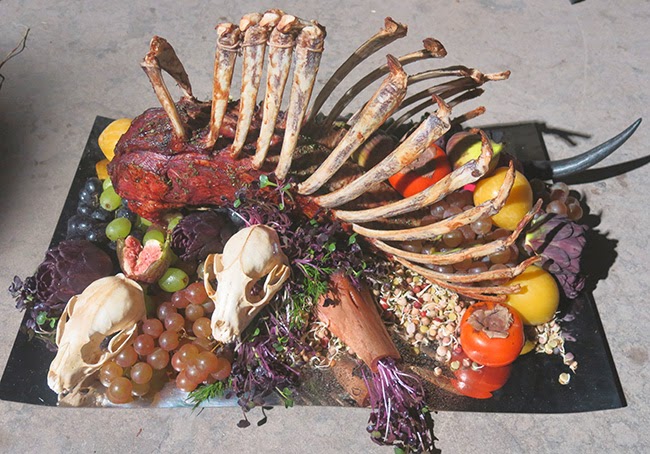 Check back tomorrow for the annual Eruditorum Press ebook sale, and Wednesday (probably later in the day) for my Twice Upon a Time review.
Check back tomorrow for the annual Eruditorum Press ebook sale, and Wednesday (probably later in the day) for my Twice Upon a Time review.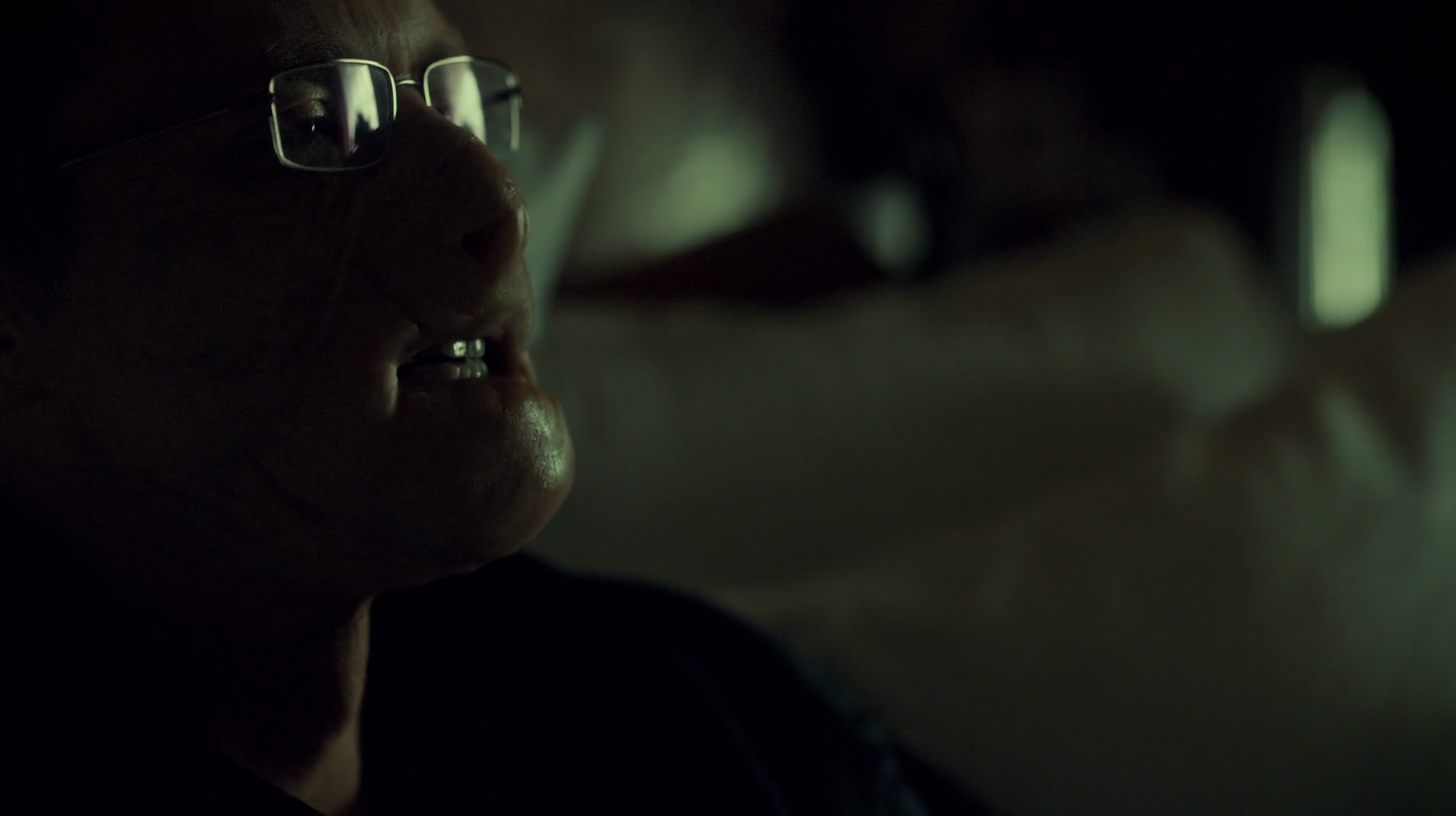
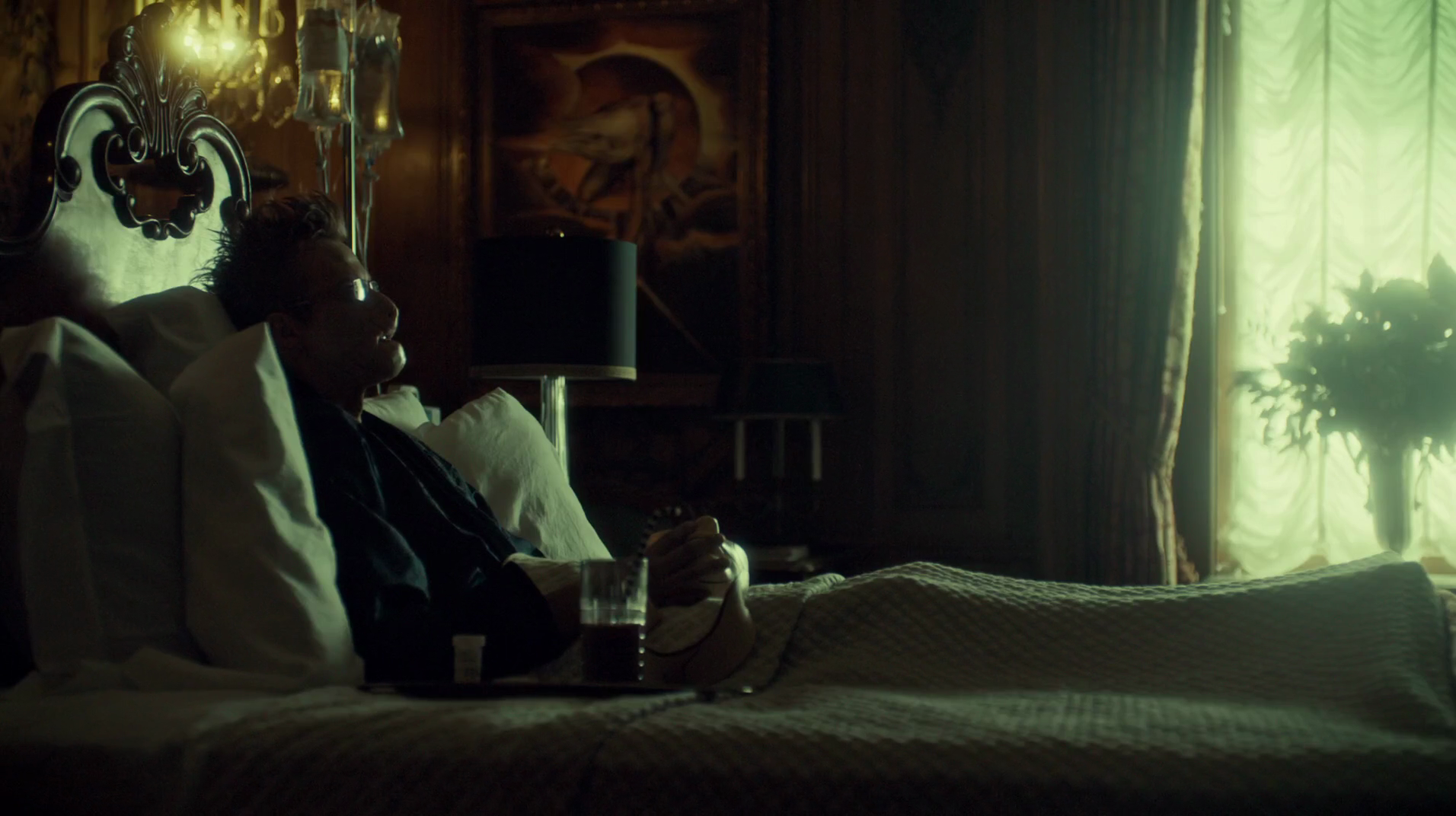
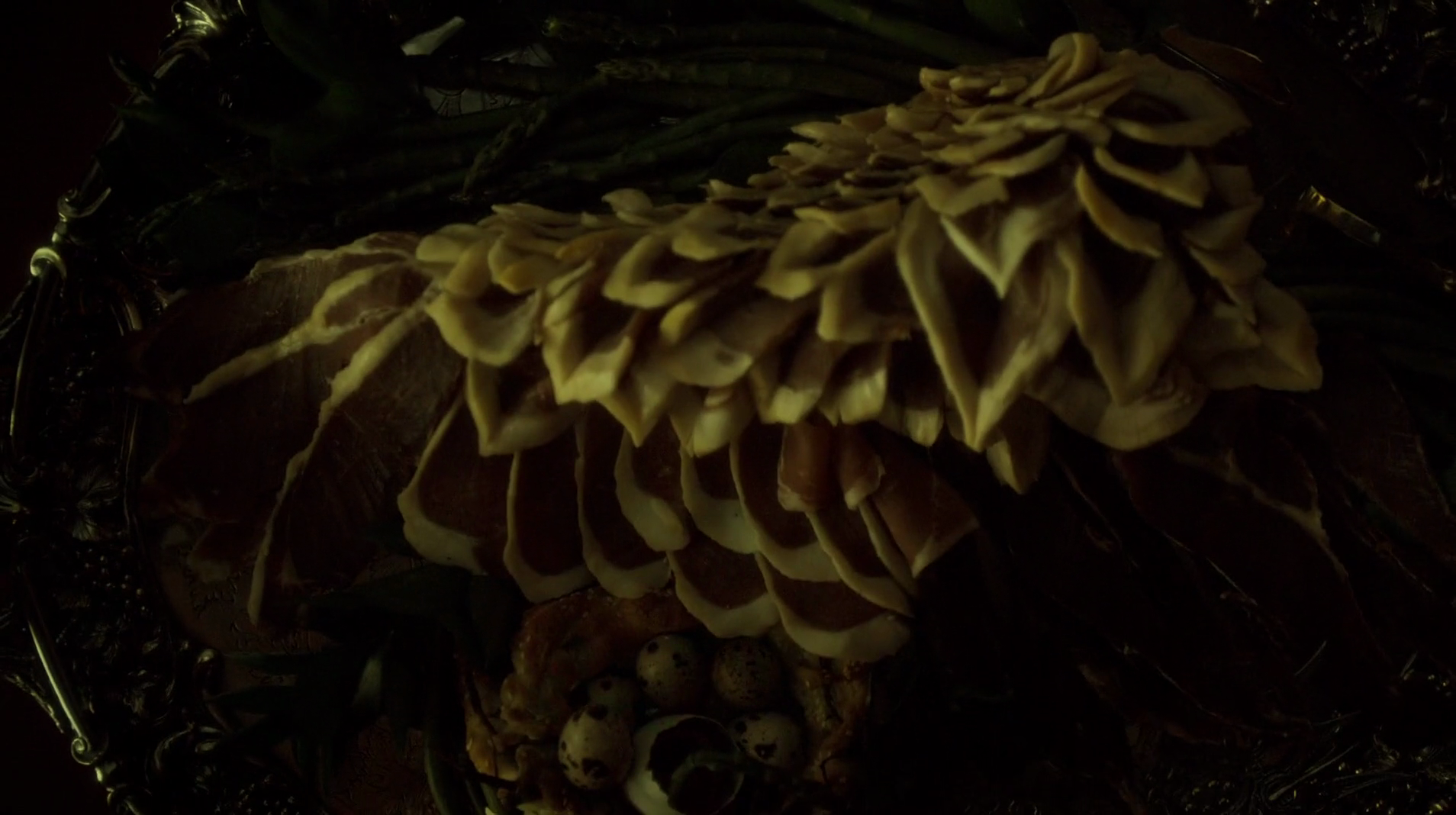 SECONDO: The heavier of the two main courses, typically meat-based. This is in no way a heavier or more substantive episode than “Primavera,” so do what you want with that.
SECONDO: The heavier of the two main courses, typically meat-based. This is in no way a heavier or more substantive episode than “Primavera,” so do what you want with that.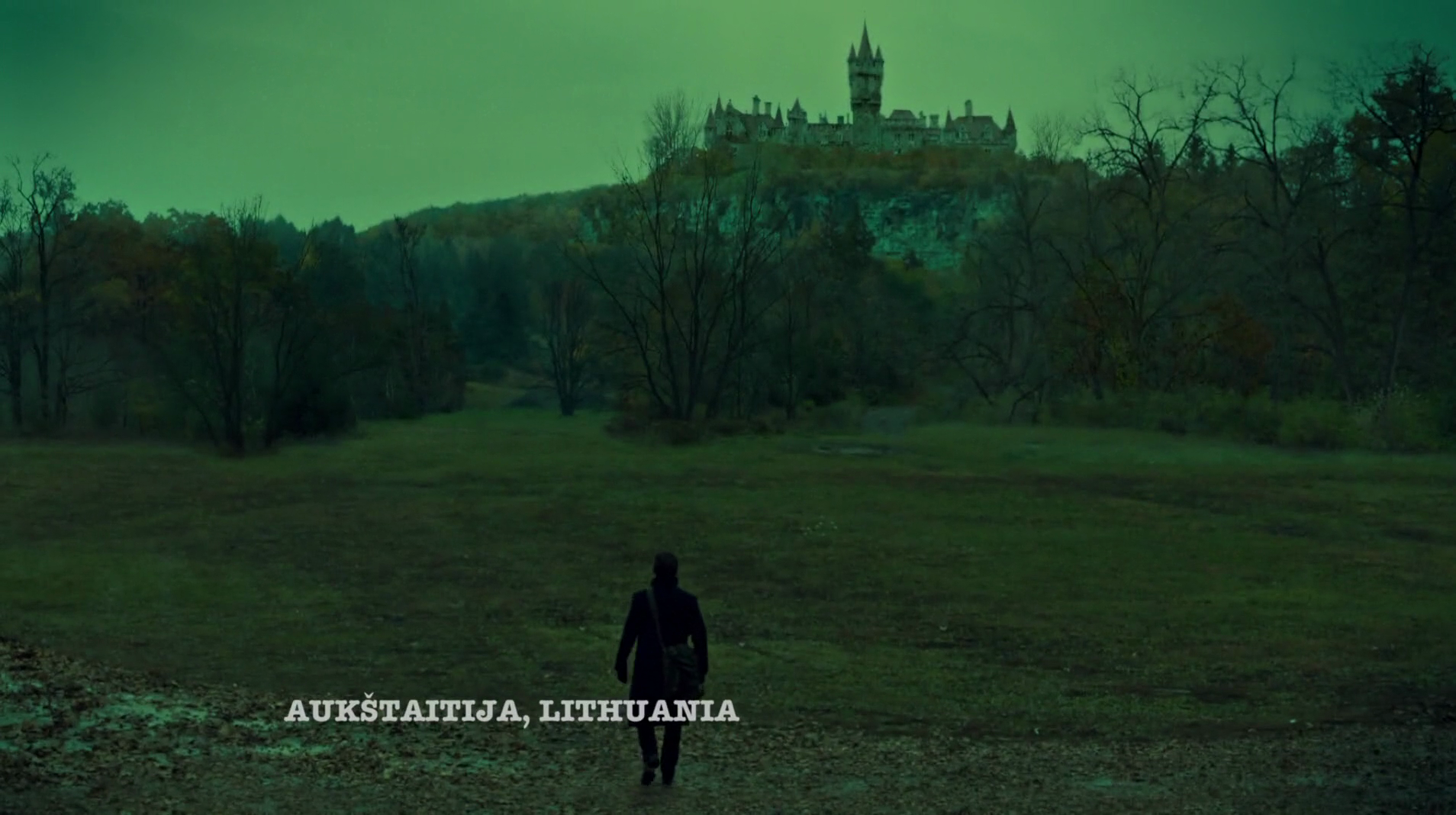
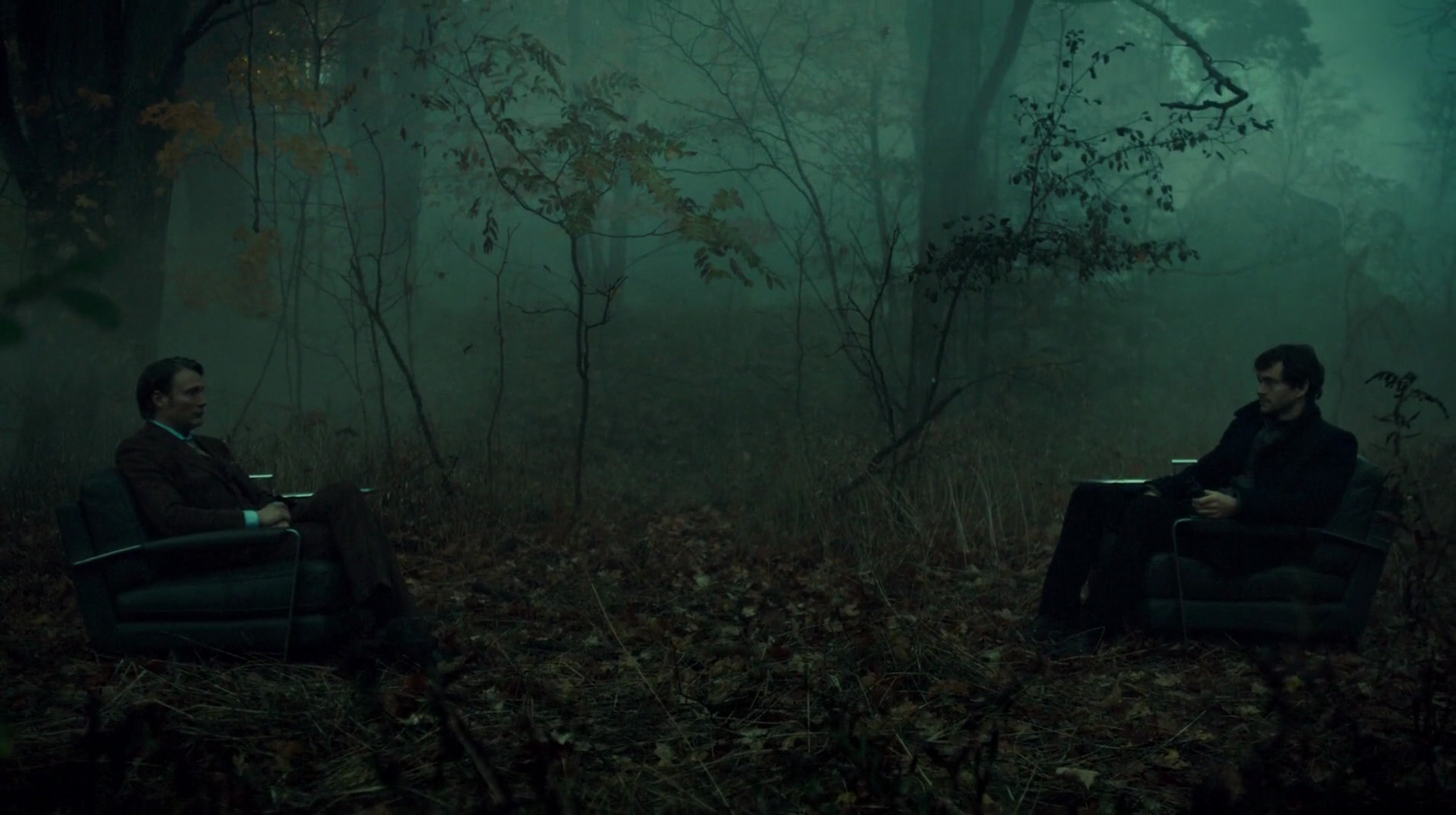
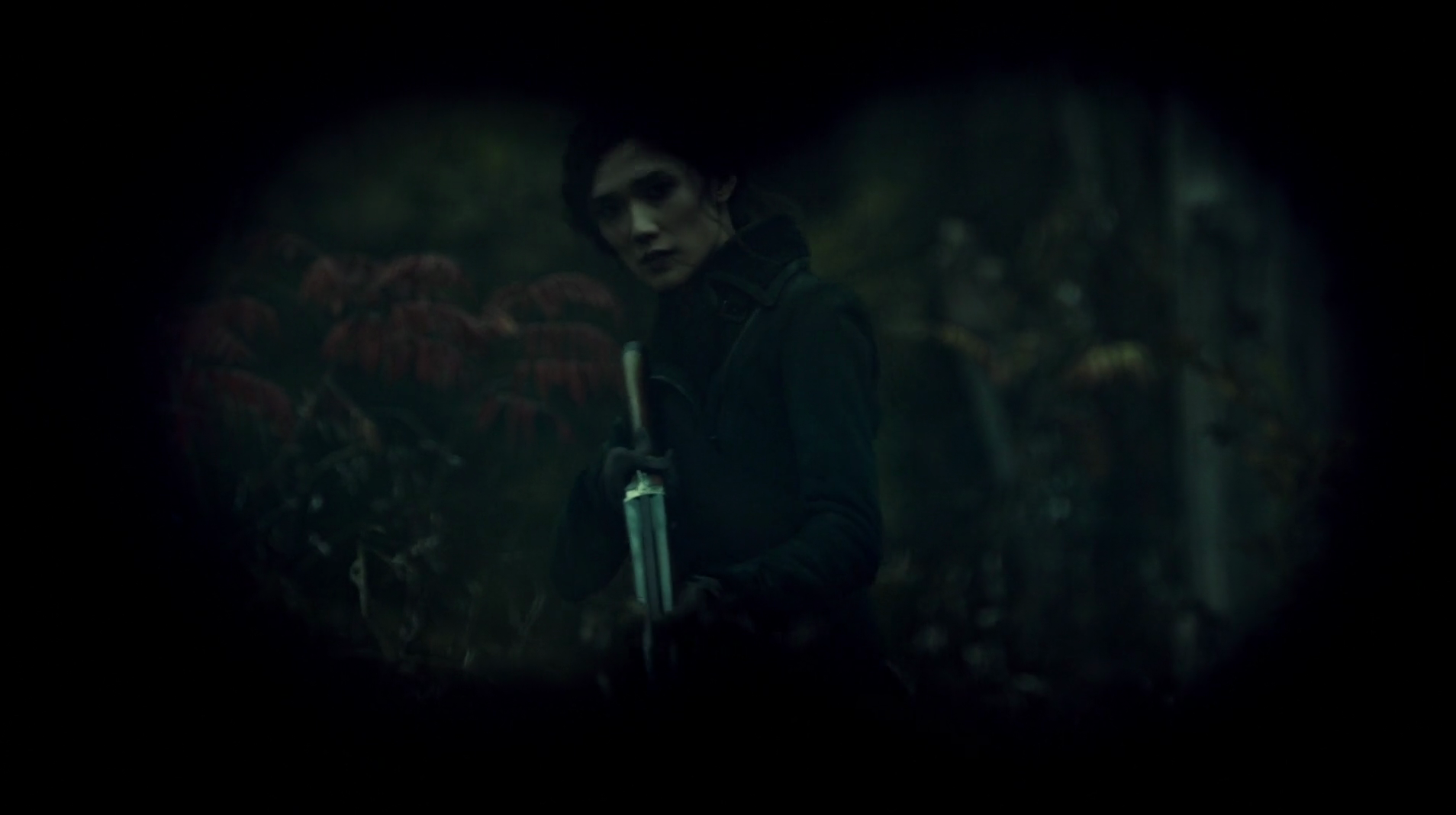
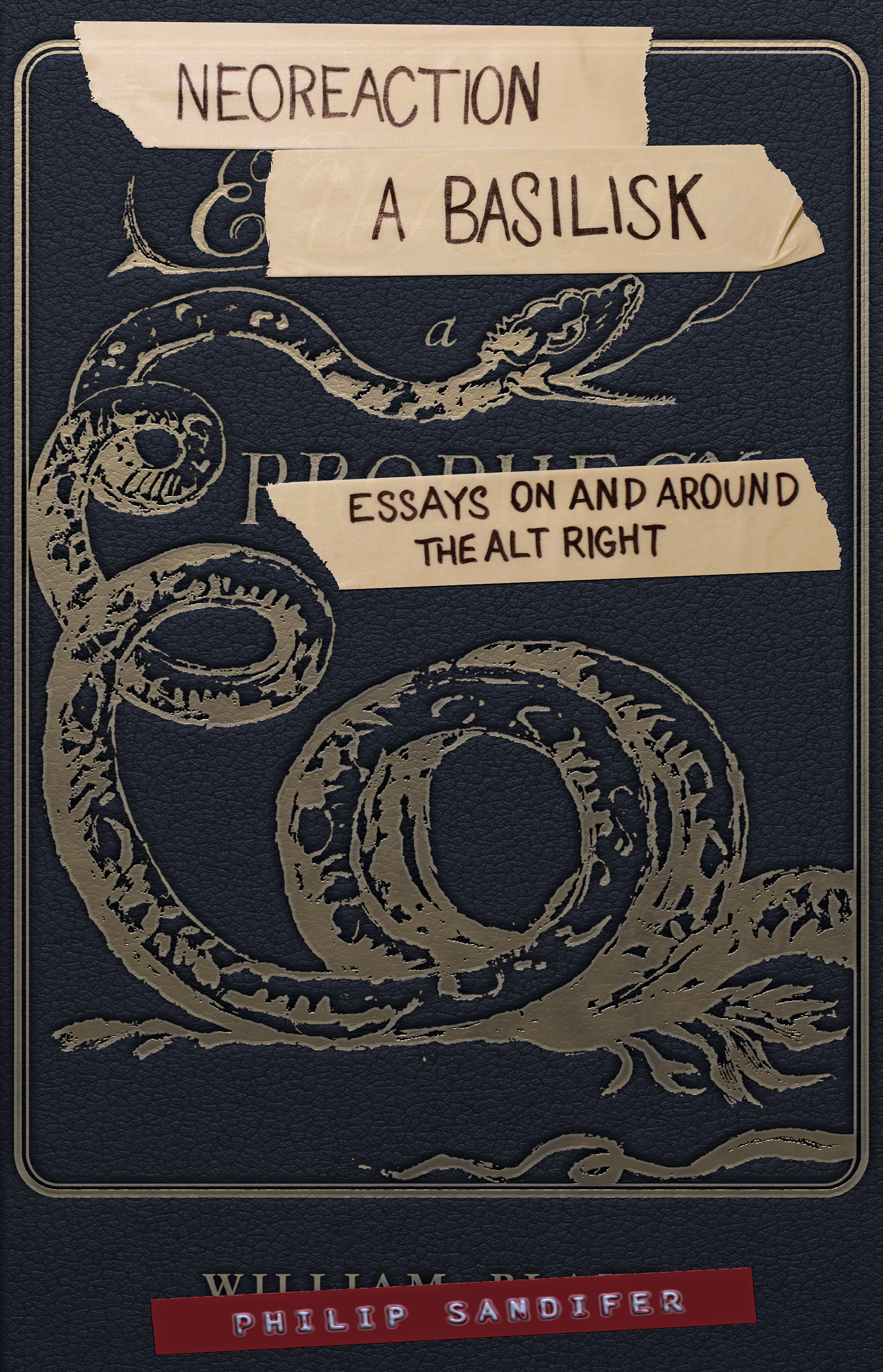 Proverbs of Hell will return next week.
Proverbs of Hell will return next week.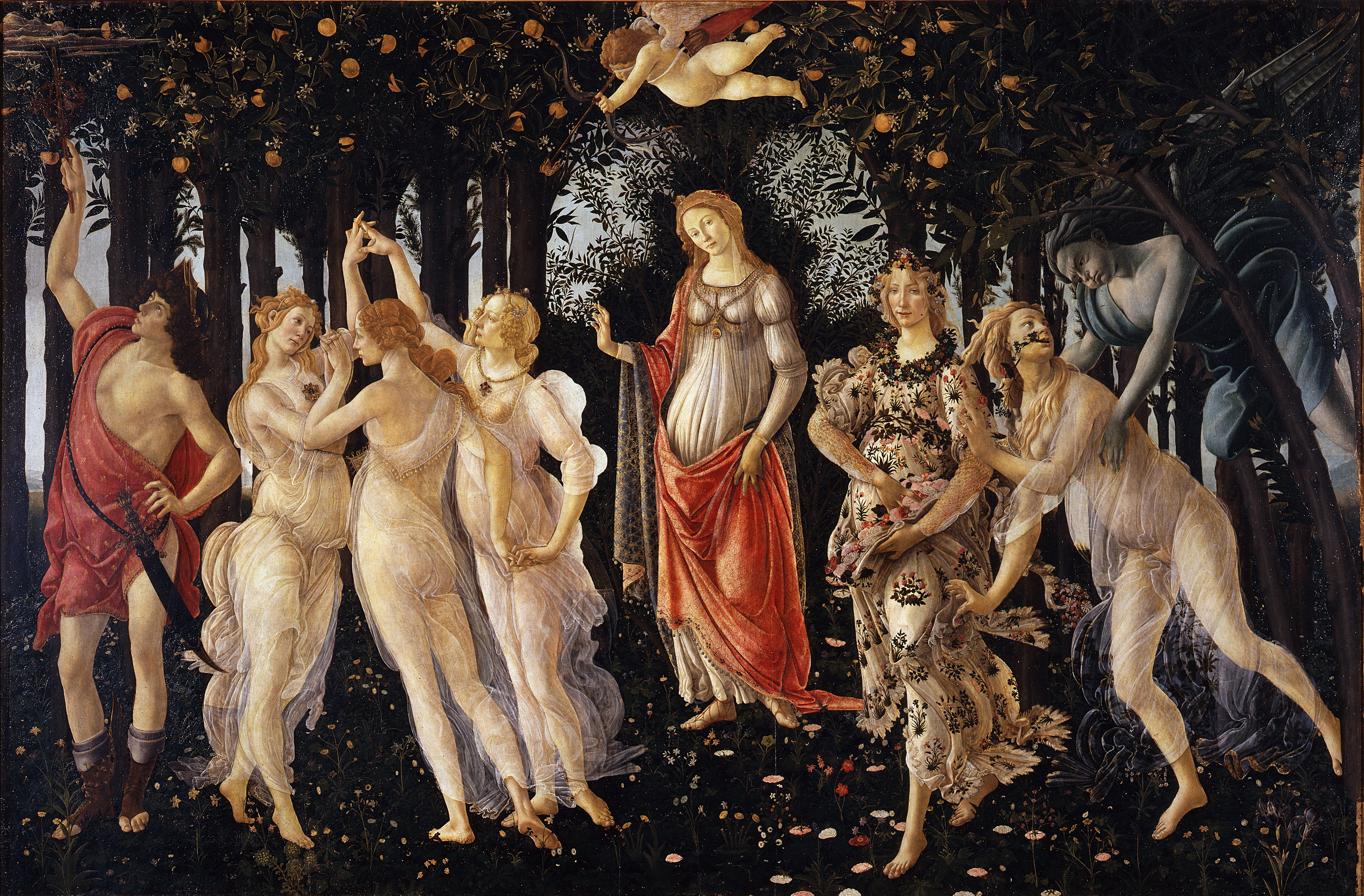 PRIMAVERA: Hoo boy. OK, so the course of an Italian menu between antipasto and secondo is supposed to be “primo.” This is often a pasta course, but can also be a risotto, a soup, or some similar hot course. One such dish certainly could be pasta primavera, which is a pasta and vegetable dish that takes its name from the Italian word for spring, which is “primavera.” This dish, however, is not actually Italian – it’s an American dish dating to the 1970s and likely first prepared in Nova Scotia. And more to the point, “primavera” on its own is not actually a food word at all. In fact this episode belongs more to the titling scheme of the second half of the season, as we’ll see in a bit.
PRIMAVERA: Hoo boy. OK, so the course of an Italian menu between antipasto and secondo is supposed to be “primo.” This is often a pasta course, but can also be a risotto, a soup, or some similar hot course. One such dish certainly could be pasta primavera, which is a pasta and vegetable dish that takes its name from the Italian word for spring, which is “primavera.” This dish, however, is not actually Italian – it’s an American dish dating to the 1970s and likely first prepared in Nova Scotia. And more to the point, “primavera” on its own is not actually a food word at all. In fact this episode belongs more to the titling scheme of the second half of the season, as we’ll see in a bit.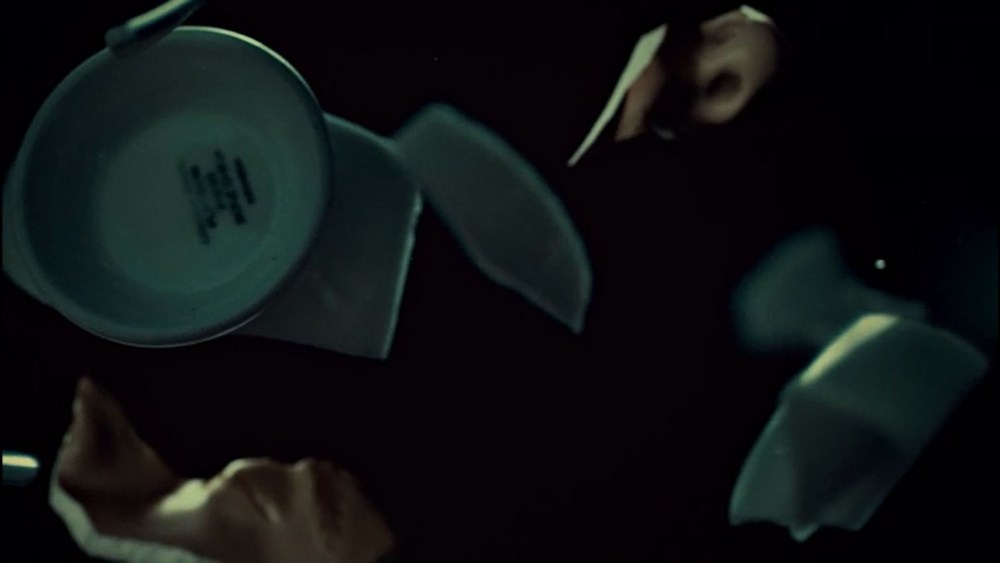
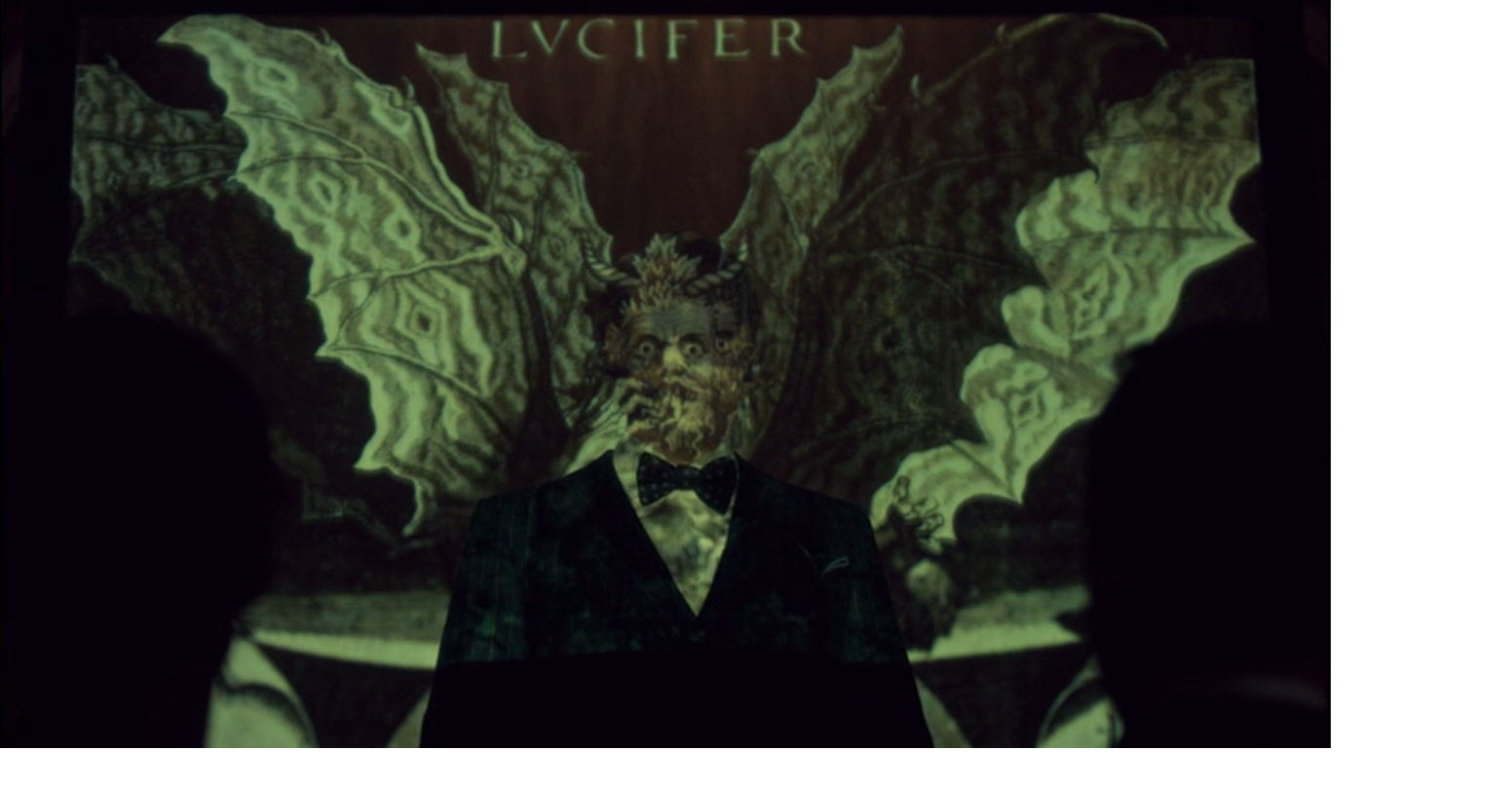 ANTIPASTO: And so we move to Italian cuisine for seven episodes. Antipasto is the starter course, distinct from the amuse bouche or sakizuki in that it is a heavier dish, often with cold meats, as befits this unusually dense premiere.
ANTIPASTO: And so we move to Italian cuisine for seven episodes. Antipasto is the starter course, distinct from the amuse bouche or sakizuki in that it is a heavier dish, often with cold meats, as befits this unusually dense premiere.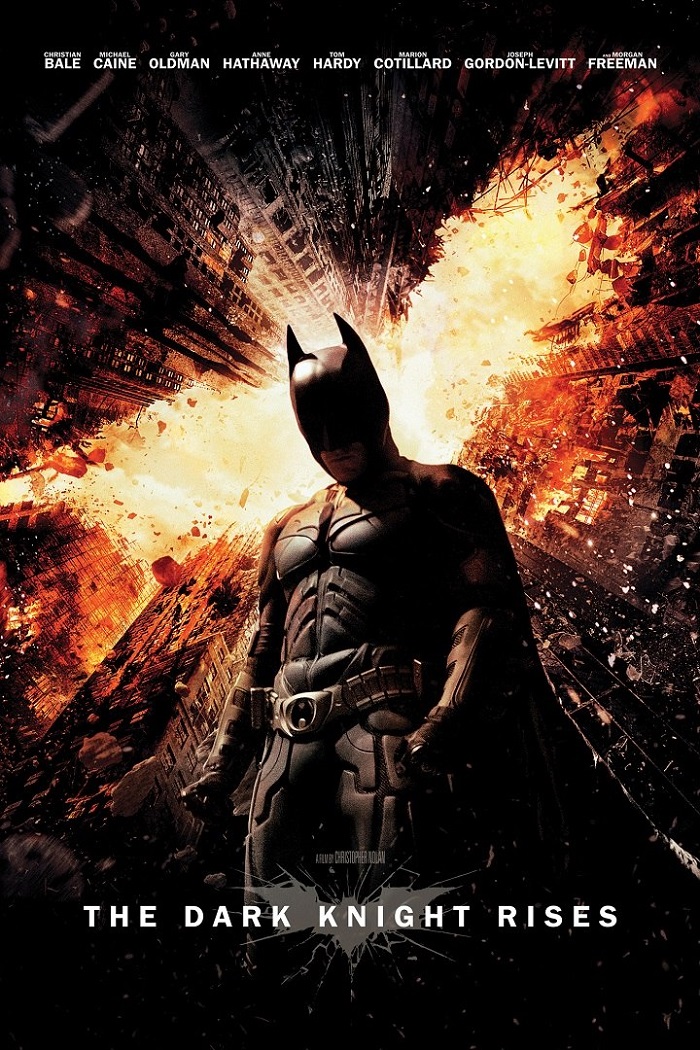 The Dark Knight Rises
The Dark Knight Rises